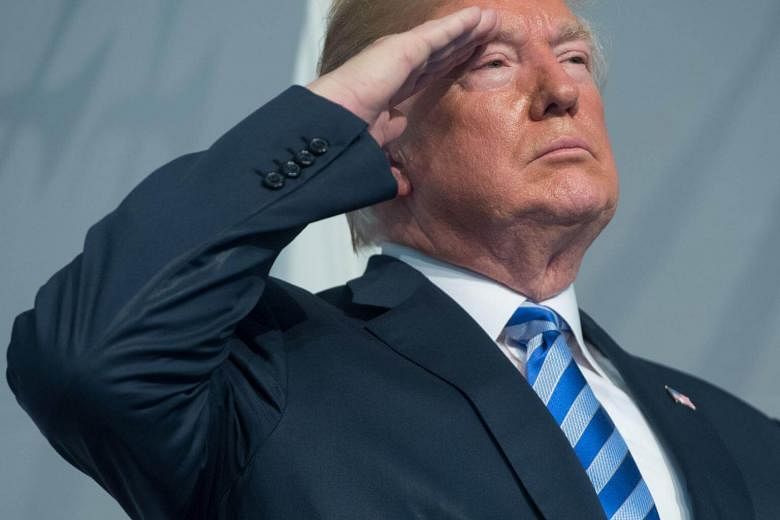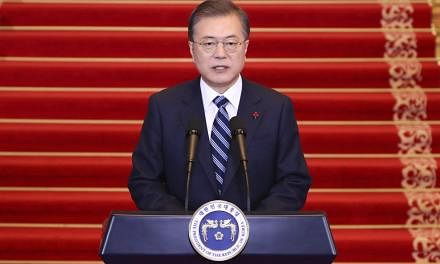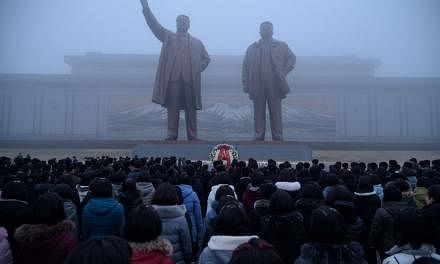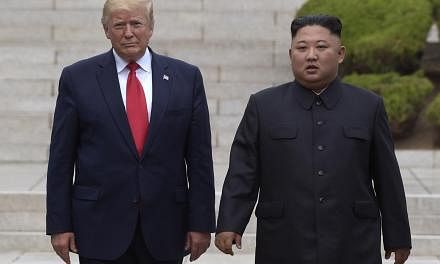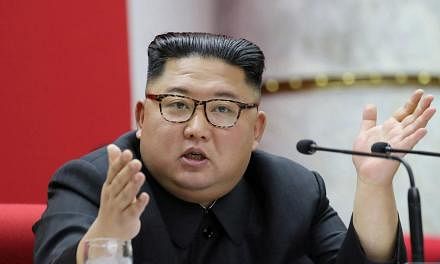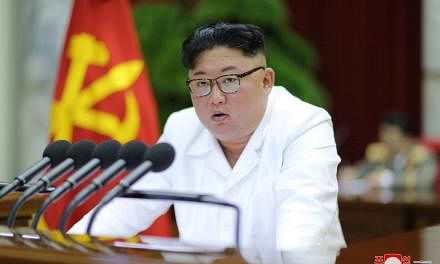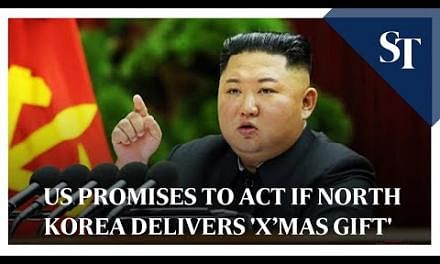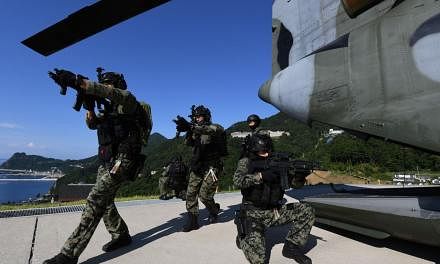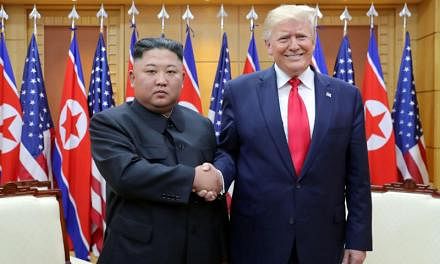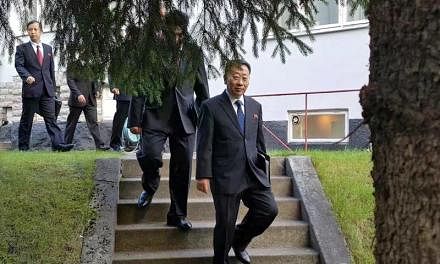WASHINGTON (NYTIMES) - At the direction of the young dictator Kim Jong Un, officers in the North Korean military have carried out the executions of more than 340 of the country's own citizens, including other military officials, using methods that are often as morbidly theatrical as they are inhumane and barbaric.
President Donald Trump saluted one of those officers this week.
Mr Trump's salute - captured in a lengthy documentary on the Singapore summit produced by North Korean state media - put the White House on the defensive on Thursday (June 14) and drew questions about whether a high-ranking officer of a militaristic dictatorship deserved to be on the receiving end of a gesture meant to symbolise respect, camaraderie and reverence.
"It's a common courtesy when a military official from another government salutes that you return that," Ms Sarah Huckabee Sanders, the White House press secretary said during a briefing with reporters.
In the documentary, the president was shown saluting the officer - General No Kwang Chol, the North Korean defence chief - after first trying to shake the general's hand.
Mr Kim is shown standing nearby.
According to military protocol, it is customary to salute officers of friendly foreign nations, though it is unclear whether the relationship between the two countries can best be categorised as a congenial one.
Despite the photogenic warmth between Mr Trump and Mr Kim, the president has repeated his determination to continue imposing sanctions on the North until it abandons its nuclear weapons. And, Ms Sanders said, Mr Trump addressed the North's human rights record with Mr Kim when they met.
But the practice of modern presidents returning salutes is thought to go back only as far as the 1980s, when president Ronald Reagan began exchanging salutes with troops. The practice has since been adopted by his successors, who occasionally land in hot water over their technique.
President Barack Obama was once criticised for holding a cup of coffee while saluting. President Bill Clinton was criticised for limp-handed salutes. President George W. Bush once saluted while holding his dog, Barney, but did not seem to encounter the same level of scrutiny.
An American president saluting a North Korean military officer in the presence of a smiling dictator is a new test case.
Mr Trump's salute quickly earned a rebuke from Major-General Paul Eaton, who is retired from the Army and served in the Iraq War. Major-General Eaton, who currently advises a progressive think tank, said the North Koreans deserved cautious diplomacy but not a salute.
"It is wholly inappropriate for the commander-in-chief of our armed forces to salute the military of our adversary, especially one which is responsible for a regime of terror, murder and unspeakable horror against its own people," Major-General Eaton said in a statement.
"We must talk with them, for the sake of avoiding a disastrous war. But they have not earned the salute of a president."
It is difficult to divine the motivations of a president like Mr Trump, a mercurial personality who tends to put ideology aside in pursuit of a quick deal. But analysts say public admiration of authoritarian strongmen has been one of Mr Trump's few consistently held views.
Nearly 30 years ago, Mr Trump praised the Chinese government for its massacre of hundreds of pro-democracy protesters. Since becoming president, Mr Trump has often expressed a desire to become closer to President Vladimir Putin of Russia, despite steps taken by his administration to expel Russian diplomats over national security concerns.
And when it comes to Mr Kim, Mr Trump has in recent months pivoted from disparaging the leader as "Little Rocket Man" on Twitter to using precious foreign diplomacy hours on a much-publicised summit that was heavy on theatre but did not go far enough to eradicating the North Korean nuclear threat.
In an interview with Bret Baier of Fox News, Mr Trump called Kim a "tough guy", praised his negotiation skills, and avoided Baier's questions about Mr Kim's dismal human rights record.
When applied with the weight of the presidency, a salute to a North Korean military official has the effect of legitimising Mr Kim's government, said associate professor of political science and international affairs Elizabeth Saunders at George Washington University and the author of "Leaders at War: How Presidents Shape Military Interventions".
"It's possible that it was just instinctive and he didn't think it through," Prof Saunders said. "But that doesn't mean it's not consistent with everything he's believed the whole time."
Saluting a North Korean general, she added, is in some respects "the apotheosis of that belief".
